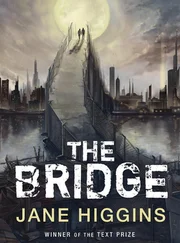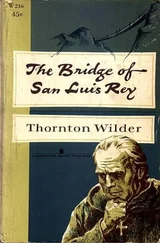But she wouldn’t go. Today she wouldn’t leave the house. Today, while the Greeks gathered in the church on Murray Street to celebrate a long life, several kilometres down the road, at the chapel at Altona Crematorium, another group of mourners would be farewelling Ashleigh. Young and vibrant; too young, a life cut short. What would Ashleigh have done with those extra seventy years?
Ashleigh’s family and friends would drive past the house on their way to the funeral. She remembered Rae’s words: ‘I wish it was your daughter and not mine.’ She imagined rocks through windows; she imagined gunshots. Rae and Alex could turn violent. When Rae had come to the door, she was spent, falling apart, despairing, a woman collapsing into her grief. It had shocked Mandy to see her so depleted. But fury might rise — it might be the only way to stop grief from becoming all-consuming. The death of a daughter was surely enough to turn any parent into a monster. Mandy remembered her gentle father after her mother’s death, the way he crept around the house, his quiet steps, his silence. And then one day, a week after the funeral, she came home to find him in the kitchen smashing plates against the wall in a violent and terrifying rage.
Mandy locked the front door and the windows, pulled down all the blinds, and turned off the radio. She lit the long white candle, the one she kept in the emergency drawer along with matches, a torch, and the first-aid kit. She’d never lit a candle to mark a death — candles had no special significance for her — but the flame was strangely comforting.
She knew she should go to Jo. They should be together. She should be holding her daughter, giving her comfort. But it was Jo’s fault Ashleigh was dead, and the anger was overwhelming. The anger and the sadness. She was weary and bruised and unable to move, so she continued to sit at the table with her cold coffee and weep.
No one hammered on the door. No one came to yell at Jo. Or at Mandy. The day was listless. The candle flame flickered, the clock on the kitchen wall marking every second.
Jo finally fell asleep exhausted. She woke hours later, disorientated.
Why aren’t you going to my funeral? You can’t even stay awake.
When they’d slept at each other’s houses, Ash fell asleep first. Many nights Jo lay awake watching Ash sleep, watching her toss and turn. Ash kicked her legs until all the covers were tossed off, onto the ground or, if they were sharing a bed, onto Jo.
Jo closed her eyes, crossed her arms over her chest, and tried to imagine being Ash, lying in a coffin. No more movement, no more tossing and turning, no more kicking.
I am dead, not you. Let me at least have that.
‘I’ll be dead too, one day.’ The thought gave Jo comfort.
Ashleigh’s family gathered at the house and waited for the funeral cars. The men, dressed in their suits and ties, paced around the garden; the smokers lit cigarette after cigarette and the non-smokers envied them. The women wore dark dresses or dark pants and jackets. Normally a boisterous crowd, they were lost for words.
Jane wore a plain blue dress. She hadn’t worn a dress since she was a toddler. ‘Don’t ask that, Dad,’ Alex reprimanded him once when Antonello asked his granddaughter why she didn’t wear dresses.
‘This is Ash’s dress. Is it okay to wear it? I asked Mum, but I don’t think she heard me,’ Jane had asked Paolina earlier. Paolina had nodded.
Jane was taller than Ashleigh and skinnier, so the dress was too big. She wore it with purple Doc Marten boots that reminded Antonello of his mother, on those winter days in Sicily when they all went out to the vineyards to pick the grapes. Emilia always wore a dress, and over the dress, an apron. She didn’t own boots, but for the harvest she borrowed a pair of his father’s old shoes. They were too big, and accentuated her narrow ankles and her strong calf muscles.
Jane was avoiding her parents, keeping out of their way, out of their sight. With Ashleigh, they’d been a family, a tight unit, but now they’d been yanked apart; they were separate entities, detached, floating. They were lost and broken and it seemed impossible that they could become a family again. ‘Never,’ Antonello heard Rae say. ‘We will never be whole again.’
Gone was the spontaneity that Alex and Rae encouraged, that Antonello had disapproved of. Gone were the in-jokes that he didn’t get, the giggling laughter, and the eye-rolls when he or Paolina did something old-fashioned, something too Italian, something they didn’t approve of.
Ashleigh was the more affectionate of the two girls. From the time she learnt to crawl until she was eleven or twelve, she’d climbed onto his lap asking for stories, curled up next to him on the couch and fallen asleep, begged to stay over and inched between them in bed. He’d never let Alex and Nicki sleep in their bed, but he didn’t say no to Ashleigh. Jane was a fussy baby, and hated being left behind by her mother. Skittish. She slipped off laps and out of grasps. She refused to spend nights anywhere but her own bed. She hated to be touched; she squirmed when they moved in to give her a kiss, a hug, to run their fingers through her hair. Jane was more aloof than Ashleigh, and he hadn’t persisted. He’d let her be. Now he put his hands tentatively on her shoulders, and she leant into him.
There were two funeral cars. Jane said she wanted to go with Antonello and Paolina. Rae’s parents went in the other car, with Rae and Alex. Nicki and her son, Thomas, and Rae’s sisters and their families, made their own way to the chapel at the Altona cemetery. No one said anything about which route they might take, but someone must have alerted the funeral directors, and so they avoided Whitehall and Hyde Streets, the freeway, and the West Gate Bridge.
Paolina wore a black dress, black stockings, and shoes. If Ashleigh were alive, she would have teased her grandmother about being dressed in black. ‘You’re a goth,’ she would have said, ‘just missing a tattoo and a few piercings.’ And if it weren’t Ashleigh that was dead but some elderly relative, Alex, Rae, and Nicki would’ve all said something — Oh, Mum, no one wears all black for mourning anymore — like they did when Paolina’s mother died and she insisted on wearing black for three months, as was the old Italian tradition, even though Paolina was born in Australia and for most of her life had rebelled against the old ways.
Now Paolina might never wear colour again. She might dress in black until she died. He envied her. She wore her grief, took it with her, and wherever she went she was a reminder to everyone, to the whole world, that someone much loved had died.
All week people had mistaken Antonello for a normal bloke. They didn’t notice that his whole world was crumbling and that he was having trouble keeping upright; that his body was loose and unstable, unanchored. He wasn’t sure about anything, not walking or breathing. He’d lost the ability to operate in the world, to stand at the street corner and give directions to the cinema to a mother with a carload of ten-year-olds. Or listen to a young man wanting to sell a new phone plan. He didn’t have the energy or the words to tell them, he couldn’t bring himself to say, My granddaughter died , my beautiful granddaughter died . If he’d been able to wear black, all black, they might’ve read the signs and left him alone.
Paolina wound her rosary beads around her fingers. At some stage she’d swapped her everyday blue ones for the black rosary beads that had belonged to her mother. Her funeral beads. At regular intervals she raised the silver cross to her lips. She chanted prayers in a low whisper. In the early days, when they were first married, he found this irritating. Why, he wanted to know, could she not say the prayers in silence? ‘I am,’ she’d insist.
Читать дальше












